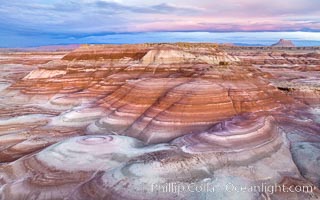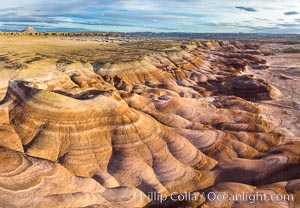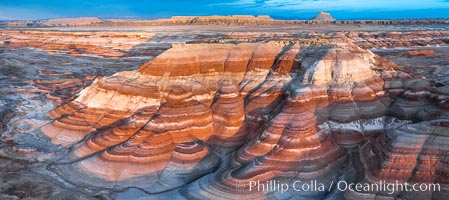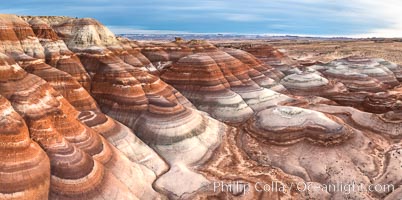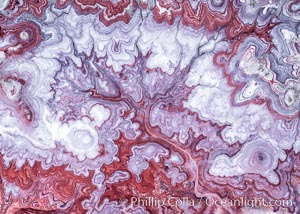
The Tree of Eons, a spectacular dendritic formation in the Bentonite Hills of Utah. Fantastic colorful sedimentary patterns, ancient Bentonite layers are exposed through erosion in the Utah Badlands. The Bentonite Hills are composed of the Brushy Basin shale member of the Morrison Formation. This layer was formed during Jurassic times when mud, silt, fine sand, and volcanic ash were deposited in swamps and lakes. Photographed just before sunrise with soft pre-dawn illumination. Aerial panoramic photograph.
Location: Utah
Image ID: 37951
Panorama dimensions: 11000 x 15000
Location: Utah
Image ID: 37951
Panorama dimensions: 11000 x 15000
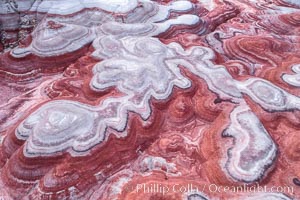
Fantastic colorful sedimentary patterns of Bentonite layers, seen as striations exposed in the Utah Badlands. The Bentonite Hills are composed of the Brushy Basin shale member of the Morrison Formation formed during Jurassic times when mud, silt, fine sand, and volcanic ash were deposited in swamps and lakes into layers, now revealed through erosion. Aerial photograph.
Location: Utah
Image ID: 37947
Location: Utah
Image ID: 37947
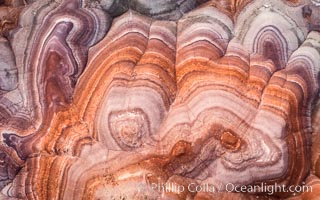
Fantastic colorful sedimentary patterns, Bentonite layers are seen as striations exposed in the Utah Badlands. The Bentonite Hills are composed of the Brushy Basin shale member of the Morrison Formation. This layer was formed during Jurassic times when mud, silt, fine sand, and volcanic ash were deposited in swamps and lakes. Aerial photograph.
Location: Utah
Image ID: 38029
Location: Utah
Image ID: 38029
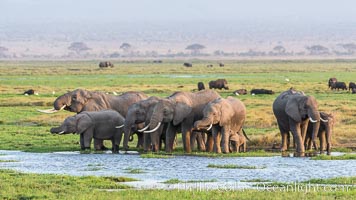
African elephant herd, drinking water at a swamp, Amboseli National Park, Kenya.
Species: African elephant, Loxodonta africana
Location: Amboseli National Park, Kenya
Image ID: 29529
Species: African elephant, Loxodonta africana
Location: Amboseli National Park, Kenya
Image ID: 29529
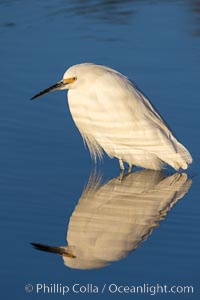
Snowy egret, Mission Bay, San Diego. The snowy egret can be found in marshes, swamps, shorelines, mudflats and ponds. The snowy egret eats shrimp, minnows and other small fish, crustaceans and frogs. It is found on all coasts of North America and, in winter, into South America.
Species: Snowy Egret, Egretta thula
Image ID: 36823
Species: Snowy Egret, Egretta thula
Image ID: 36823
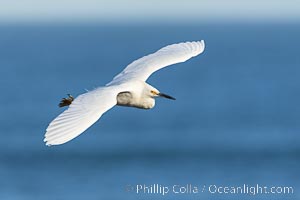
Snowy egret in flight gliding over the ocean in La Jolla. The snowy egret can be found in marshes, swamps, shorelines, mudflats and ponds. The snowy egret eats shrimp, minnows and other small fish, crustaceans and frogs. It is found on all coasts of North America and, in winter, into South America.
Species: Snowy Egret, Egretta thula
Location: La Jolla, California
Image ID: 38926
Species: Snowy Egret, Egretta thula
Location: La Jolla, California
Image ID: 38926
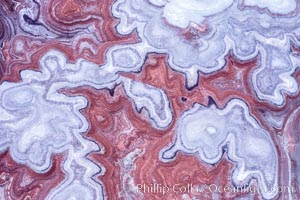
Fantastic colorful sedimentary patterns, Bentonite layers are seen as striations exposed in the Utah Badlands, part of the Brushy Basin shale member of the Morrison Formation. This layer was formed during Jurassic times when mud, silt, fine sand, and volcanic ash were deposited in swamps and lakes. Aerial photograph.
Location: Utah
Image ID: 38019
Location: Utah
Image ID: 38019
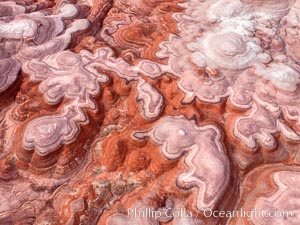
Fantastic colorful sedimentary patterns of Bentonite layers, seen as striations exposed in the Utah Badlands. The Bentonite Hills are composed of the Brushy Basin shale member of the Morrison Formation formed during Jurassic times when mud, silt, fine sand, and volcanic ash were deposited in swamps and lakes into layers, now revealed through erosion. Aerial photograph.
Location: Utah
Image ID: 38067
Location: Utah
Image ID: 38067
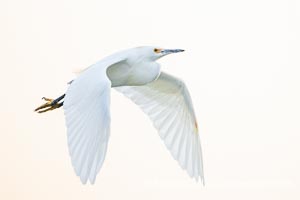
Snowy egret in flight gliding over the ocean in La Jolla. The snowy egret can be found in marshes, swamps, shorelines, mudflats and ponds. The snowy egret eats shrimp, minnows and other small fish, crustaceans and frogs. It is found on all coasts of North America and, in winter, into South America.
Species: Snowy Egret, Egretta thula
Location: La Jolla, California
Image ID: 39861
Species: Snowy Egret, Egretta thula
Location: La Jolla, California
Image ID: 39861
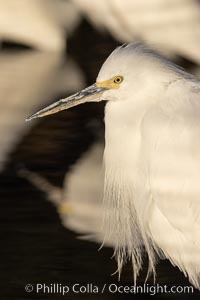
Snowy egret, Mission Bay, San Diego. The snowy egret can be found in marshes, swamps, shorelines, mudflats and ponds. The snowy egret eats shrimp, minnows and other small fish, crustaceans and frogs. It is found on all coasts of North America and, in winter, into South America.
Species: Snowy Egret, Egretta thula
Image ID: 36824
Species: Snowy Egret, Egretta thula
Image ID: 36824
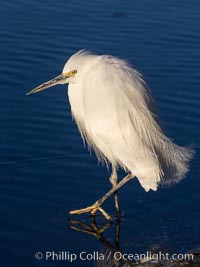
Snowy egret, Mission Bay, San Diego. The snowy egret can be found in marshes, swamps, shorelines, mudflats and ponds. The snowy egret eats shrimp, minnows and other small fish, crustaceans and frogs. It is found on all coasts of North America and, in winter, into South America.
Species: Snowy Egret, Egretta thula
Image ID: 36825
Species: Snowy Egret, Egretta thula
Image ID: 36825
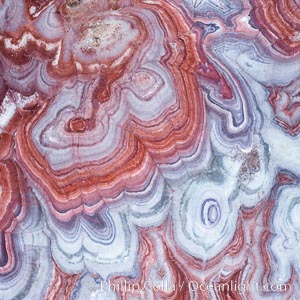
Fantastic colorful sedimentary patterns, Bentonite layers are seen as striations exposed in the Utah Badlands, part of the Brushy Basin shale member of the Morrison Formation. This layer was formed during Jurassic times when mud, silt, fine sand, and volcanic ash were deposited in swamps and lakes. Aerial photograph.
Location: Utah
Image ID: 38020
Location: Utah
Image ID: 38020
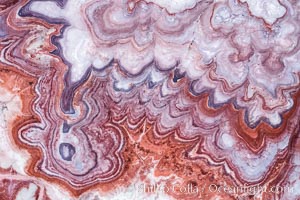
Fantastic colorful sedimentary patterns, Bentonite layers are seen as striations exposed in the Utah Badlands, part of the Brushy Basin shale member of the Morrison Formation. This layer was formed during Jurassic times when mud, silt, fine sand, and volcanic ash were deposited in swamps and lakes. Aerial photograph.
Location: Utah
Image ID: 38021
Location: Utah
Image ID: 38021
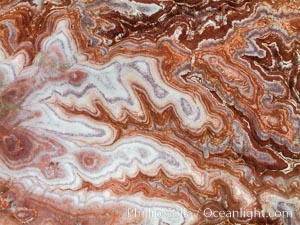
Fantastic colorful sedimentary patterns, Bentonite layers are seen as striations exposed in the Utah Badlands. The Bentonite Hills are composed of the Brushy Basin shale member of the Morrison Formation. This layer was formed during Jurassic times when mud, silt, fine sand, and volcanic ash were deposited in swamps and lakes. Aerial photograph.
Location: Utah
Image ID: 38030
Location: Utah
Image ID: 38030
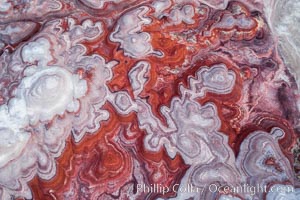
Fantastic colorful sedimentary patterns of Bentonite layers, seen as striations exposed in the Utah Badlands. The Bentonite Hills are composed of the Brushy Basin shale member of the Morrison Formation formed during Jurassic times when mud, silt, fine sand, and volcanic ash were deposited in swamps and lakes into layers, now revealed through erosion. Aerial photograph.
Location: Utah
Image ID: 38047
Location: Utah
Image ID: 38047
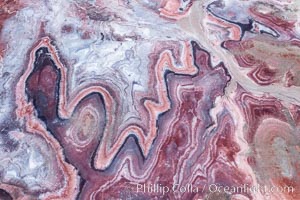
Fantastic colorful sedimentary patterns of Bentonite layers, seen as striations exposed in the Utah Badlands. The Bentonite Hills are composed of the Brushy Basin shale member of the Morrison Formation formed during Jurassic times when mud, silt, fine sand, and volcanic ash were deposited in swamps and lakes into layers, now revealed through erosion. Aerial photograph.
Location: Utah
Image ID: 38053
Location: Utah
Image ID: 38053
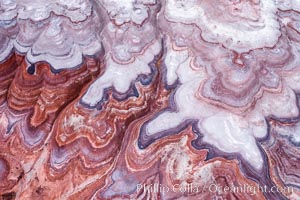
Fantastic colorful sedimentary patterns of Bentonite layers, seen as striations exposed in the Utah Badlands. The Bentonite Hills are composed of the Brushy Basin shale member of the Morrison Formation formed during Jurassic times when mud, silt, fine sand, and volcanic ash were deposited in swamps and lakes into layers, now revealed through erosion. Aerial photograph.
Location: Utah
Image ID: 38056
Location: Utah
Image ID: 38056

Amboseli National Park swamp viewed from Observation Hill, panoramic photo.
Location: Amboseli National Park, Kenya
Image ID: 29578
Panorama dimensions: 4611 x 22687
Location: Amboseli National Park, Kenya
Image ID: 29578
Panorama dimensions: 4611 x 22687
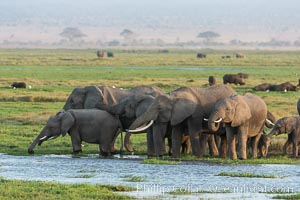
African elephant herd, drinking water at a swamp, Amboseli National Park, Kenya.
Species: African elephant, Loxodonta africana
Location: Amboseli National Park, Kenya
Image ID: 29526
Species: African elephant, Loxodonta africana
Location: Amboseli National Park, Kenya
Image ID: 29526
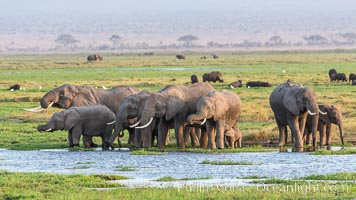
African elephant herd, drinking water at a swamp, Amboseli National Park, Kenya.
Species: African elephant, Loxodonta africana
Location: Amboseli National Park, Kenya
Image ID: 29530
Species: African elephant, Loxodonta africana
Location: Amboseli National Park, Kenya
Image ID: 29530
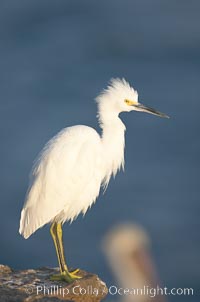
Snowy egret. The snowy egret can be found in marshes, swamps, shorelines, mudflats and ponds. The snowy egret eats shrimp, minnows and other small fish, crustaceans and frogs. It is found on all coasts of North America and, in winter, into South America.
Species: Snowy egret, Egretta thula
Location: La Jolla, California
Image ID: 15291
Species: Snowy egret, Egretta thula
Location: La Jolla, California
Image ID: 15291
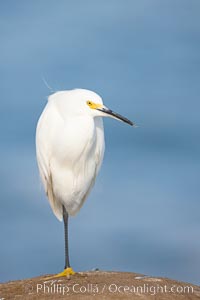
Snowy egret. The snowy egret can be found in marshes, swamps, shorelines, mudflats and ponds. The snowy egret eats shrimp, minnows and other small fish, crustaceans and frogs. It is found on all coasts of North America and, in winter, into South America.
Species: Snowy egret, Egretta thula
Location: La Jolla, California
Image ID: 15292
Species: Snowy egret, Egretta thula
Location: La Jolla, California
Image ID: 15292
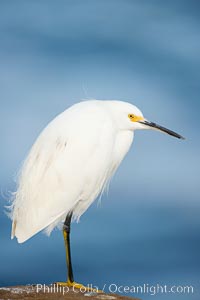
Snowy egret. The snowy egret can be found in marshes, swamps, shorelines, mudflats and ponds. The snowy egret eats shrimp, minnows and other small fish, crustaceans and frogs. It is found on all coasts of North America and, in winter, into South America.
Species: Snowy egret, Egretta thula
Location: La Jolla, California
Image ID: 15293
Species: Snowy egret, Egretta thula
Location: La Jolla, California
Image ID: 15293
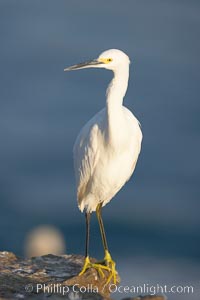
Snowy egret. The snowy egret can be found in marshes, swamps, shorelines, mudflats and ponds. The snowy egret eats shrimp, minnows and other small fish, crustaceans and frogs. It is found on all coasts of North America and, in winter, into South America.
Species: Snowy egret, Egretta thula
Location: La Jolla, California
Image ID: 15294
Species: Snowy egret, Egretta thula
Location: La Jolla, California
Image ID: 15294
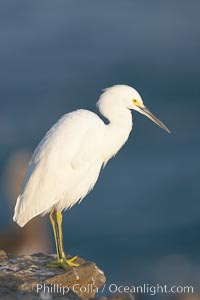
Snowy egret. The snowy egret can be found in marshes, swamps, shorelines, mudflats and ponds. The snowy egret eats shrimp, minnows and other small fish, crustaceans and frogs. It is found on all coasts of North America and, in winter, into South America.
Species: Snowy egret, Egretta thula
Location: La Jolla, California
Image ID: 15295
Species: Snowy egret, Egretta thula
Location: La Jolla, California
Image ID: 15295
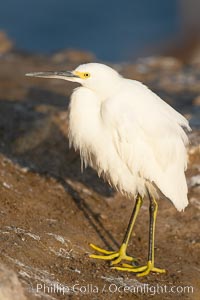
Snowy egret. The snowy egret can be found in marshes, swamps, shorelines, mudflats and ponds. The snowy egret eats shrimp, minnows and other small fish, crustaceans and frogs. It is found on all coasts of North America and, in winter, into South America.
Species: Snowy egret, Egretta thula
Location: La Jolla, California
Image ID: 15296
Species: Snowy egret, Egretta thula
Location: La Jolla, California
Image ID: 15296
